Studying medicine in Nepal provides a unique blend of cultural immersion and rigorous academic training. With institutions like Tribhuvan University, Kathmandu University, Manipal College of Medical Science offering medical programs, students gain hands-on experience in diverse healthcare settings, including rural clinics and urban hospitals. The curriculum emphasizes holistic healthcare, incorporating traditional healing practices alongside modern medicine. Graduates often contribute to improving healthcare access and outcomes in Nepal, addressing the country's healthcare disparities and making a positive impact on public health.

Nestled in the majestic Himalayas, Nepal is a land of breathtaking natural beauty, rich cultural heritage, and spiritual significance. Home to Mount Everest, the world's tallest peak, and an array of other towering mountains, Nepal attracts adventurers and trekkers from around the globe. Its diverse geography ranges from lush valleys to remote mountain villages, offering a tapestry of landscapes. Culturally, Nepal is a melting pot, with influences from Hinduism, Buddhism, and indigenous traditions shaping its festivals, art, and architecture. Kathmandu, the capital, is a bustling city dotted with ancient temples, vibrant markets, and bustling streets. Tourism, agriculture, and remittances are vital to Nepal's economy, providing livelihoods for many. As the birthplace of Buddha, Nepal holds spiritual significance for millions worldwide, drawing pilgrims seeking enlightenment and inner peace.


| Intake | September - October |
|---|---|
| Score Required in 10+2 | 50% in PCB |
| NEET Requirement | Yes, NEET Qualified |
| Fees Structure | 12000 – 15000 USD Per Year |
| Hostel | 100 USD Per Month |
| Duration | 4.5+1 Years (Including Internship) |
| Medium of Instruction | English |
| Top Medical University | Manipal College of Medical Science
Kathmandu Medical College |
| Recognition | NMC, FAIMER, WFME, WHO, ECFMG |
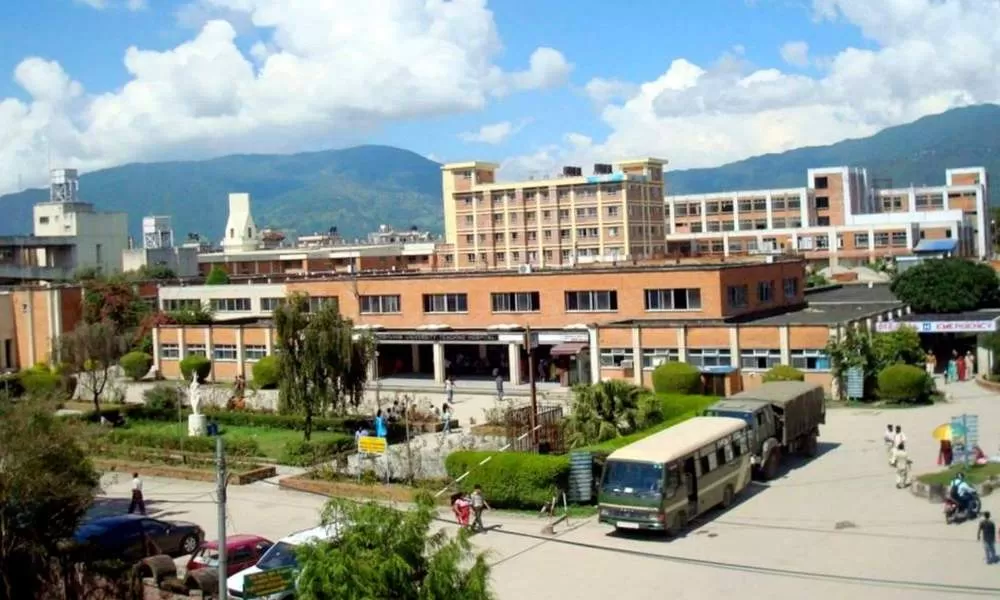
The Institute of Medicine (IOM) in Nepal is a distinguished medical institution that holds significant importance in the country's healthcare sector. Established in 1972, the IOM is affiliated with Tribhuvan University, which is the oldest and largest university in Nepal. Over the years, the Institute of Medicine has played a pivotal role in shaping medical education, research, and healthcare delivery in Nepal.
The Institute of Medicine was established with the primary aim of producing skilled healthcare professionals to address the healthcare needs of Nepal. It was founded as part of Tribhuvan University, named after King Tribhuvan Bir Bikram Shah, Nepal's revered monarch. The institute's inception marked a crucial milestone in Nepal's efforts to enhance its healthcare infrastructure and improve medical education standards.
The Institute of Medicine is committed to fostering excellence in medical education, research, and healthcare delivery. Its mission encompasses several key objectives:
Providing high-quality medical education: The IOM aims to offer comprehensive and rigorous medical education programs that equip students with the knowledge, skills, and ethical principles necessary for professional practice. The institute encourages faculty members and students to engage in research activities aimed at addressing prevalent health issues, discovering innovative treatments, and advancing medical knowledge.
The Institute of Medicine offers a wide range of academic programs catering to various healthcare disciplines. These programs include undergraduate, postgraduate, and doctoral degrees in medicine, dentistry, nursing, pharmacy, public health, and allied health sciences. The institute's curriculum integrates theoretical knowledge with practical training, ensuring that students develop clinical competency and critical thinking skills.
The Institute of Medicine boasts a diverse faculty comprising experienced clinicians, researchers, and educators. The faculty members are renowned experts in their respective fields, actively involved in teaching, research, and clinical practice. They play a pivotal role in mentoring students, guiding research endeavors, and shaping healthcare policies and practices in Nepal.
Research is a cornerstone of the Institute of Medicine's academic endeavors. Faculty members and students engage in a wide array of research projects spanning basic science, clinical research, epidemiology, public health, and healthcare management. The institute fosters a culture of innovation and collaboration, encouraging interdisciplinary research initiatives aimed at addressing the country's healthcare challenges and contributing to global medical knowledge.
The IOM has 700 bed hospital along with collaboration with several teaching hospitals and healthcare institutions across Nepal to provide clinical training opportunities to its students. These institutions serve as hubs for hands-on learning, where students acquire practical skills under the guidance of experienced healthcare professionals. The clinical training programs encompass various medical specialties, including internal medicine, surgery, pediatrics, obstetrics and gynecology, psychiatry, and more.
The Institute of Medicine collaborates with renowned academic institutions, research organizations, and healthcare providers globally to exchange knowledge, expertise, and best practices. These international partnerships facilitate student and faculty exchanges, joint research endeavors, and capacity-building initiatives aimed at enhancing medical education, research, and healthcare delivery in Nepal.
Institute of Medicine is poised to further expand its academic programs, strengthen its research capabilities, and enhance its role in shaping Nepal's healthcare landscape. By fostering innovation, promoting collaboration, and advocating for health equity, the IOM continues to uphold its commitment to advancing medical education, research, and healthcare delivery for the betterment of Nepalese society.

B.P. Koirala Institute of Health Sciences (BPKIHS) is a premier medical institution in Nepal named after Bharat Ratna Dr. Bishweshwar Prasad Koirala, the late Prime Minister of Nepal. Established in 1993, it stands as a symbol of Nepal's commitment to providing high-quality healthcare and medical education to its citizens and beyond. BPKIHS is located in Dharan, a vibrant city in eastern Nepal, and it has emerged as a center of excellence in medical education, research, and healthcare delivery.
B.P. Koirala Institute of Health Sciences was established through an act of the Parliament of Nepal in 1993 with the aim of addressing the acute shortage of healthcare professionals and improving the overall health infrastructure in the country. The institute was envisioned as a hub for medical education, research, and tertiary care services, catering not only to the population of Nepal but also to the neighboring regions.
B.P. Koirala Institute of Health Sciences offers a wide range of academic programs in various disciplines of health sciences. The institute provides undergraduate, postgraduate, and doctoral programs in medicine, dentistry, nursing, public health, and allied health sciences. The medical curriculum is designed to produce competent healthcare professionals who are equipped to address the healthcare needs of the population, especially in rural and underserved areas.
B.P. Koirala Institute of Health Sciences boasts state-of-the-art infrastructure and facilities to support its academic and clinical activities. The institute has modern lecture halls, well-equipped laboratories, a vast library with a rich collection of medical literature, and advanced medical equipment to facilitate teaching, learning, and research. The campus also includes a hospital with specialized departments offering tertiary care services to patients from Nepal and neighboring countries.
The hospital affiliated with BPKIHS 700 bed hospital which provides a wide range of clinical services across various specialties, including internal medicine, surgery, pediatrics, obstetrics and gynecology, orthopedics, and oncology, among others. The hospital is staffed with experienced healthcare professionals who deliver compassionate care to patients while also providing hands-on training to medical students and residents.
B.P. Koirala Institute of Health Sciences has forged partnerships with several international universities, organizations, and donor agencies to enhance its academic and clinical programs, exchange expertise, and foster global collaborations in healthcare and medical education. These collaborations enable faculty and students to participate in exchange programs, research projects, and capacity-building initiatives, thereby enriching their educational experience and expanding their professional networks.
B.P. Koirala Institute of Health Sciences stands as a beacon of excellence in medical education, research, and healthcare delivery in Nepal and the region. With its commitment to academic excellence, clinical innovation, and community engagement, BPKIHS continues to play a vital role in shaping the future of healthcare in Nepal and advancing the well-being of its people.
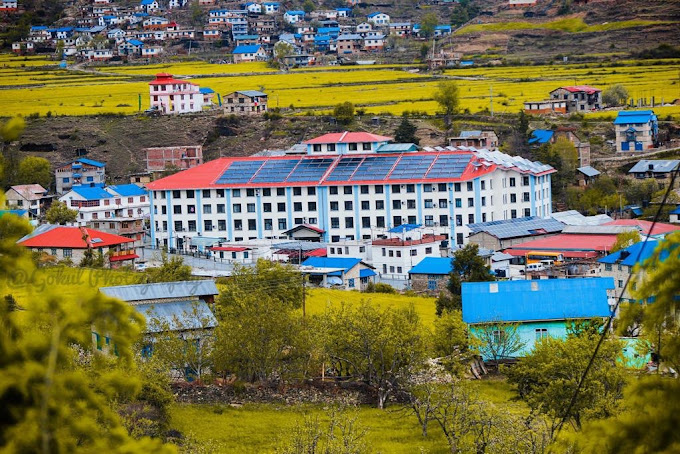
The Karnali Academy of Health Sciences (KAHS) is a pioneering institution situated in Jumla, Nepal. Founded with the vision of delivering quality healthcare and medical education to the remote regions of Nepal, KAHS stands as a beacon of hope and progress in the realm of healthcare education and provision.
The inception of The Karnali Academy of Health Sciences dates back to the year 2007 when the Government of Nepal identified the dire need for a medical institution in the remote and underserved Karnali region. The establishment of The Karnali Academy of Health Sciences aimed to address the healthcare disparities prevalent in the region by training healthcare professionals and providing accessible medical services to the local populace.
The Karnali Academy of Health Sciences offers a range of academic programs encompassing undergraduate, postgraduate, and diploma courses in various medical and health-related disciplines. The institution's flagship program is the Bachelor of Medicine, Bachelor of Surgery (MBBS), which equips students with comprehensive medical knowledge and practical skills through a rigorous curriculum.
In addition to the MBBS program, Karnali Academy of Health Sciences provides postgraduate courses in various specialties including Internal Medicine, Pediatrics, Surgery, Obstetrics and Gynecology, and Anesthesiology, among others. These programs aim to produce specialists capable of addressing the diverse healthcare needs of the population.
The Karnali Academy of Health Sciences boasts state-of-the-art infrastructure and facilities designed to facilitate effective teaching, learning, and healthcare delivery. The institution is equipped with modern classrooms, laboratories, libraries, and simulation centers that provide students with hands-on learning experiences and exposure to real-life clinical scenarios.
Karnali Academy of Health Sciences operates 300 bed teaching hospital, which serves as a primary healthcare center for the local community and a training ground for medical students and residents. The hospital is equipped with advanced medical equipment and staffed by experienced healthcare professionals dedicated to providing quality care to patients.
A core tenet of The Karnali Academy of Health Sciences philosophy is community engagement and outreach. Recognizing the unique healthcare challenges faced by the rural population of Karnali, the institution actively collaborates with local communities, government agencies, and non-profit organizations to implement health promotion initiatives, outreach programs, and medical camps aimed at improving health outcomes and raising awareness about prevalent health issues.
KAHS is committed to fostering a culture of research and innovation aimed at advancing medical knowledge and addressing the healthcare needs of the population. Faculty members and students engage in research activities across various domains including public health, epidemiology, clinical medicine, and medical education.
Karnali Academy of Health Sciences stands as a testament to the transformative power of education and healthcare in empowering communities and fostering sustainable development. Through its unwavering commitment to excellence, innovation, and social responsibility, KAHS continues to make significant strides in the advancement of medical education, research, and healthcare delivery in Nepal's remote Karnali region and beyond.
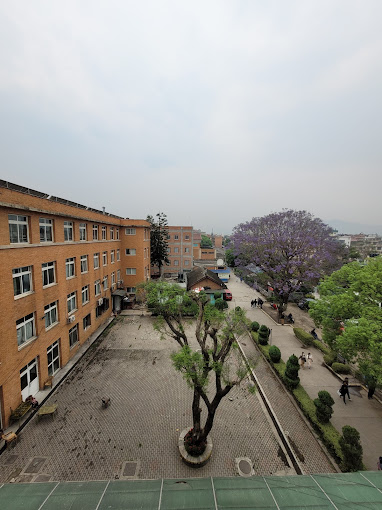
Patan Academy of Health Sciences (PAHS) is a distinguished medical university located in Patan, Nepal. Established in 2008, PAHS has emerged as a premier institution dedicated to medical education, research, and healthcare services in Nepal and the broader South Asian region.
The establishment of Patan Academy of Health Sciences was a response to the critical need for high-quality medical education and healthcare services in Nepal. Prior to its inception, the country faced significant challenges in providing accessible and advanced medical care to its population, particularly in rural and remote areas. PAHS was envisioned as a catalyst for change, aiming to train a new generation of healthcare professionals and improve healthcare delivery systems across Nepal.
Patan Academy of Health Scienceis guided by a mission to educate competent and compassionate healthcare professionals, conduct innovative research, and provide exemplary healthcare services to underserved communities. The university envisions a future where every individual in Nepal has access to equitable, affordable, and high-quality healthcare, regardless of their socio-economic status or geographic location.
Patan Academy of Health Sciences offers a diverse range of academic programs designed to meet the evolving needs of the healthcare sector in Nepal. The university provides undergraduate, postgraduate, and doctoral programs in various disciplines, including medicine, nursing, public health, and allied health sciences. The curriculum is carefully crafted to integrate theoretical knowledge with practical skills, ensuring that graduates are well-prepared to address the complex healthcare challenges facing Nepal and beyond.
Patan Academy of Health Sciences boasts a team of highly qualified faculty members who are renowned experts in their respective fields. Committed to excellence in teaching, research, and clinical practice, the faculty members play a pivotal role in shaping the academic and professional development of students at PAHS. Additionally, the university is supported by dedicated administrative staff who work tirelessly to ensure the smooth functioning of academic and operational activities.
Research and innovation are integral components of PAHS's academic ethos. The university actively encourages faculty and students to engage in cutting-edge research initiatives aimed at advancing medical knowledge, improving healthcare practices, and addressing pressing health issues in Nepal. PAHS collaborates with national and international partners to foster interdisciplinary research collaborations and leverage emerging technologies to enhance healthcare delivery and patient outcomes.
Patan Academy of Health Sciences operates a network of healthcare facilities that provide comprehensive clinical services to patients from diverse backgrounds. 320 bed hospital facilities serve as training sites for students and offer opportunities for hands-on clinical experience under the guidance of experienced healthcare professionals. PAHS is committed to promoting patient-centered care, evidence-based practice, and continuous quality improvement across its clinical services.
Patan Academy of Health Sciences actively collaborates with leading academic institutions, research organizations, and healthcare providers worldwide to foster international exchange, knowledge sharing, and capacity building in healthcare. Through student exchange programs, faculty collaborations, and joint research projects, PAHS seeks to harness the collective expertise and resources of the global healthcare community to address shared challenges and promote sustainable development in Nepal and beyond.
Patan Academy of Health Sciences stands as a beacon of hope and excellence in Nepal's healthcare sector. With its unwavering commitment to education, research, and service, PAHS continues to inspire future generations of healthcare professionals and contribute to the health and well-being of communities across Nepal and beyond. As the university charts a course for the future, its impact and influence are poised to grow, shaping the trajectory of healthcare in Nepal for years to come.
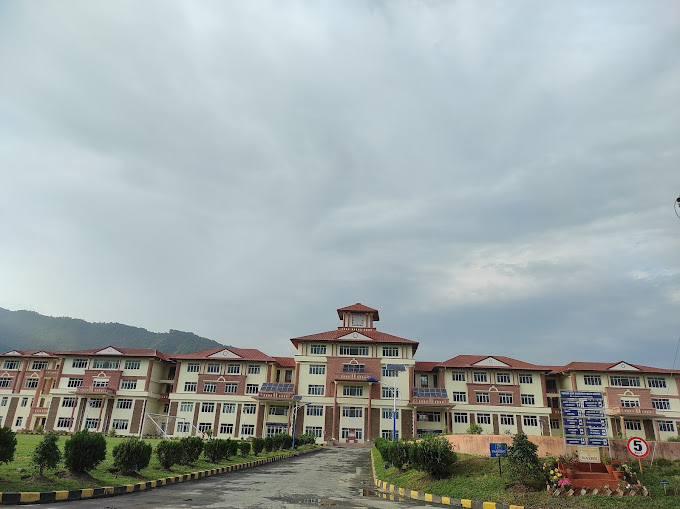
The Nepalese Army Institute of Health Sciences (NAIHS) stands as a beacon of excellence in medical education and healthcare in Nepal. Established in 2010 under the Nepalese Army Welfare Fund, it has rapidly evolved into a prestigious institution renowned for its commitment to quality medical education, research, and healthcare delivery. NAIHS is affiliated with the Tribhuvan University and recognized by the Nepal Medical Council, offering a range of undergraduate and postgraduate medical programs.
Situated in the serene surroundings of Kathmandu, the capital city of Nepal, NAIHS boasts state-of-the-art infrastructure and facilities conducive to fostering a conducive learning environment for aspiring healthcare professionals. Its sprawling campus provides a perfect blend of academic rigor and extracurricular activities essential for holistic development.
At the heart of NAIHS's mission lies the cultivation of competent and compassionate healthcare practitioners capable of addressing the evolving healthcare needs of Nepal and beyond. The institution's faculty comprises esteemed academicians, clinicians, and researchers who are dedicated to nurturing the next generation of medical leaders through innovative teaching methodologies and mentorship.
The Nepalese Army Institute of Health Sciences offers a comprehensive range of undergraduate medical programs, including Bachelor of Medicine, Bachelor of Surgery (MBBS), Bachelor of Dental Surgery (BDS), Bachelor of Nursing (BN), and Bachelor of Pharmacy (BPharm), among others. These programs are designed to instill a strong foundation in biomedical sciences, clinical skills, and professionalism, preparing students to excel in their respective fields. It boasts 635 bed hospital for ous students to provide hand on experience in clinical training.
Moreover, The Nepalese Army Institute of Health Sciences provides ample opportunities for research and scholarly activities, encouraging students and faculty members to engage in cutting-edge research initiatives aimed at addressing prevalent health challenges and advancing medical knowledge. The institution's research endeavors span various disciplines, encompassing basic sciences, clinical research, public health, and healthcare management.
The Nepalese Army Institute of Health Sciences commitment to excellence extends beyond the borders of Nepal through its collaborations with renowned international institutions and organizations. These partnerships facilitate knowledge exchange, research collaborations, and capacity-building initiatives, enriching the academic experience and global perspective of students and faculty members alike.
As a testament to its unwavering commitment to quality and excellence, NAIHS has garnered accolades and recognition both nationally and internationally. The institution's graduates are highly sought after in the healthcare industry, occupying leadership positions in hospitals, academic institutions, and research organizations across the globe.
Nepalese Army Institute of Health Sciences stands as a bastion of medical education, research, and healthcare delivery in Nepal. Through its unwavering dedication to academic excellence, research innovation, and community service, NAIHS continues to shape the future of healthcare in Nepal and beyond, inspiring generations of healthcare professionals to make a meaningful difference in the lives of others.

Manipal College of Medical Sciences (MCOMS), located in Pokhara, Nepal, stands as a beacon of medical education and healthcare in the South Asian region. Established in 1994 under the joint collaboration of Manipal Group and the Government of Nepal, MCOMS has emerged as a premier institution for medical education, research, and healthcare delivery.
The foundation of Manipal College of Medical Sciences was laid with a vision to address the pressing need for competent healthcare professionals and to uplift the standards of medical education in Nepal. From its inception, the institution has been committed to nurturing skilled physicians, nurses, and allied health professionals equipped to serve the diverse healthcare needs of the population.
Manipal College of Medical Sciences operates under the umbrella of Manipal Group, a renowned entity with a rich legacy in education and healthcare. Leveraging the expertise and resources of Manipal Group, MCOMS has continually evolved, setting benchmarks in medical education and healthcare services.
The campus of Manipal College of Medical Sciences nestled amidst the serene environs of Pokhara, provides an ideal setting for academic pursuits and clinical training. The institution boasts state-of-the-art infrastructure, including well-equipped laboratories, modern classrooms, and a vast library stocked with a plethora of medical literature.
One of the hallmarks of Manipal College of Medical Sciences is its distinguished faculty comprising seasoned academicians, clinicians, and researchers. The faculty members, hailing from diverse medical specialties, bring a wealth of knowledge and experience to the table, fostering an enriching learning environment for students.
Manipal College of Medical Sciences offers a comprehensive range of undergraduate and postgraduate programs in medicine, nursing, and allied health sciences. The curriculum is meticulously designed to impart theoretical knowledge, clinical skills, and ethical values essential for delivering compassionate and evidence-based healthcare.
The medical curriculum at Manipal College of Medical Sciences integrates classroom learning with hands-on clinical training in 750 ultra-modern bed hospital, ensuring that students gain a holistic understanding of medical science and develop proficiency in patient care. Through rigorous clinical rotations in affiliated hospitals and community health centers, students are exposed to a wide spectrum of medical conditions and healthcare settings, preparing them for the challenges of real-world practice.
In addition to academic pursuits, Manipal College of Medical Sciences places a strong emphasis on research and innovation. The institution actively fosters a culture of inquiry and discovery, encouraging faculty and students to engage in research projects addressing pertinent health issues prevalent in the region. Through collaborative research endeavors, MCOMS endeavors to contribute to the body of scientific knowledge and advance medical practice.
The clinical services offered by MCOMS encompass a wide array of specialties, including internal medicine, surgery, pediatrics, obstetrics and gynecology, psychiatry, and more. The hospital facilities are equipped with advanced diagnostic and therapeutic modalities, manned by skilled healthcare professionals dedicated to delivering quality care to patients.
Manipal College of Medical Sciences also serves as a center for continuing medical education (CME) and professional development, offering workshops, seminars, and conferences to healthcare professionals seeking to enhance their knowledge and skills.
The institution's commitment to excellence in medical education and healthcare has earned it recognition and accreditation from prestigious regulatory bodies and organizations. MCOMS is affiliated with Tribhuvan University, Nepal Medical Council, and recognized by the Medical Council of India, among others.
The alumni of MCOMS form a proud fraternity of healthcare professionals making significant contributions to the field of medicine and public health globally. Whether serving in hospitals, research institutions, or humanitarian organizations, MCOMS alumni embody the institution's values of integrity, compassion, and excellence.
As MCOMS continues its journey of academic excellence and service to humanity, it remains steadfast in its commitment to shaping the future of healthcare through education, research, and compassionate care. In a rapidly evolving healthcare landscape, MCOMS stands as a beacon of hope and healing, inspiring generations of healthcare professionals to make a meaningful difference in the lives of others
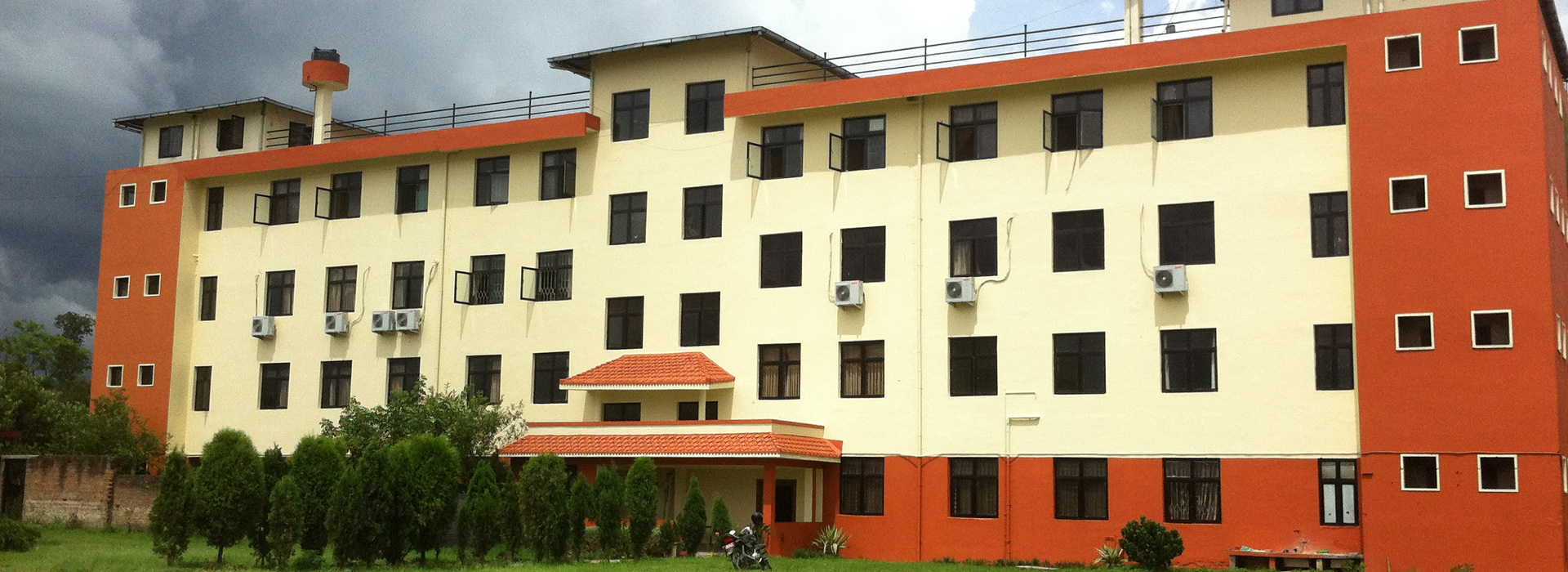
Kathmandu Medical College (KMC) is one of Nepal's prominent medical institutions, situated in the capital city of Kathmandu. Established in 1997, KMC has steadily grown to become a leading center for medical education, research, and healthcare services in Nepal and the South Asian region. The college is affiliated with Kathmandu University and is recognized by the Nepal Medical Council and the Medical Council of India.
Kathmandu Medical College is located in the heart of Kathmandu, Nepal's vibrant and culturally rich capital city. Its strategic location provides students with exposure to diverse clinical cases and medical practices, preparing them for the challenges of modern healthcare delivery.
Kathmandu Medical College offers undergraduate and postgraduate programs in various medical disciplines, including Medicine (MBBS), Nursing, Dentistry, and Allied Health Sciences. The MBBS program, the flagship offering of the institution, follows a comprehensive curriculum designed to produce competent and compassionate medical professionals.
The college boasts a team of experienced faculty members comprising medical experts, researchers, and clinicians who impart knowledge through innovative teaching methods, clinical rotations, and research opportunities.
Kathmandu Medical College features state-of-the-art infrastructure and facilities to support its academic and healthcare endeavors. The campus encompasses modern lecture halls, well-equipped laboratories, libraries stocked with medical literature and journals, and simulation centers for hands-on learning experiences.
The college also operates a tertiary care teaching hospital, Kathmandu Medical College Teaching Hospital (KMCTH), which serves as a vital hub for medical care, training, and research. The hospital is equipped with advanced medical technology and offers a wide range of medical and surgical services to patients from Nepal and beyond.
Clinical training forms an integral part of the curriculum at KMC and the college boasts 900 bed hospital for the clinical training for its students. Under the guidance of experienced clinicians, students gain practical exposure to various medical specialties, including Internal Medicine, Surgery, Pediatrics, Obstetrics and Gynecology, Psychiatry, and more.
Furthermore, Kathmandu Medical College encourages research and innovation among its faculty and students. The institution actively promotes scientific inquiry and scholarly activities, fostering a culture of academic excellence and intellectual curiosity.
Recognizing the importance of global partnerships in advancing medical education and research, Kathmandu Medical College has established collaborations with renowned academic institutions and healthcare organizations worldwide. These partnerships facilitate knowledge exchange, faculty development, research collaboration, and student exchange programs, enriching the educational experience and fostering cross-cultural understanding.
Kathmandu Medical College stands as a beacon of excellence in medical education, research, and healthcare provision in Nepal. With its unwavering commitment to academic integrity, clinical excellence, and community service, KMC continues to nurture generations of competent and compassionate healthcare professionals who are poised to make meaningful contributions to society and improve the health and well-being of people in Nepal and beyond.
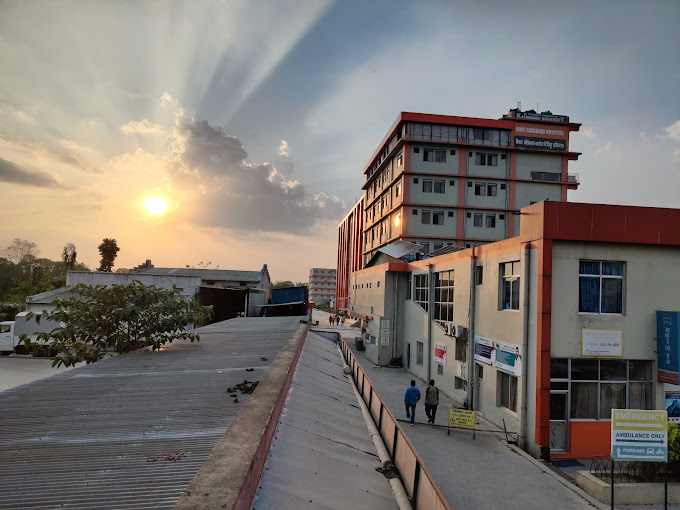
Birat Medical College (BMC) in Biratnagar, Nepal, stands as a beacon of healthcare education and service in the region. Established with a vision to foster medical excellence, BMC has emerged as a prestigious institution dedicated to producing competent healthcare professionals and providing quality healthcare services to the community. In this comprehensive overview, we delve into the rich history, academic offerings, infrastructure, faculty, and contributions of BMC to the healthcare landscape of Nepal and beyond.
Birat Medical College was established in response to the growing need for medical education and healthcare services in Nepal, particularly in the eastern region. It was founded with the aim of addressing the scarcity of healthcare professionals and improving healthcare accessibility and quality in the region. The college received its affiliation from Tribhuvan University and was recognized by the Nepal Medical Council and Ministry of Education of Nepal.
Birat Medical College offers undergraduate and postgraduate programs in various disciplines of medicine and healthcare. The undergraduate program leads to the degree of Bachelor of Medicine and Bachelor of Surgery (MBBS), which is a five and a half year course including one year of compulsory internship. The curriculum is designed to provide students with a strong foundation in medical sciences, clinical skills, and research.
In addition to the MBBS program, BMC also offers postgraduate programs in various specialties such as Internal Medicine, Pediatrics, Surgery, Obstetrics and Gynecology, Psychiatry, and others. These programs aim to train specialists who can cater to the diverse healthcare needs of the population.
Infrastructure and Facilities :
Birat Medical College boasts 550 bed state-of-the-art infrastructure hospital and facilities that facilitate effective teaching, learning, and clinical practice. The college campus is equipped with modern lecture halls, laboratories, libraries, and research facilities. The teaching hospital affiliated with BMC provides students with ample opportunities for clinical exposure and hands-on training in a real healthcare setting.
Hospital is well-equipped with advanced medical equipment, diagnostic facilities, operation theatres, intensive care units, and specialized clinics. It caters to a wide range of medical and surgical specialties and provides comprehensive healthcare services to patients from Biratnagar and neighbouring regions.
Birat Medical College prides itself on its distinguished faculty comprising experienced medical professionals, researchers, and academicians. The faculty members are experts in their respective fields and are dedicated to imparting knowledge, mentoring students, and conducting research that contributes to the advancement of medical science and healthcare practice.
In addition to the faculty, BMC also has a dedicated team of administrative staff, healthcare professionals, and support staff who play a crucial role in the smooth functioning of the institution and the hospital.
BMC supports research initiatives in various disciplines including basic sciences, clinical research, public health, and medical education. The college provides research grants, infrastructure, and mentorship to facilitate research endeavors and promote a culture of inquiry and innovation among its faculty and students.
Birat Medical College stands as a beacon of excellence in medical education, healthcare services, research, and community engagement in Nepal. With its commitment to academic excellence, clinical proficiency, and social responsibility, BMC continues to shape the future of healthcare in the region and make a meaningful impact on the lives of individuals and communities it serves. Through its holistic approach to medical education and healthcare delivery, BMC remains dedicated to nurturing compassionate, competent, and socially conscious healthcare professionals who will lead the way in addressing the healthcare challenges of the 21st century.
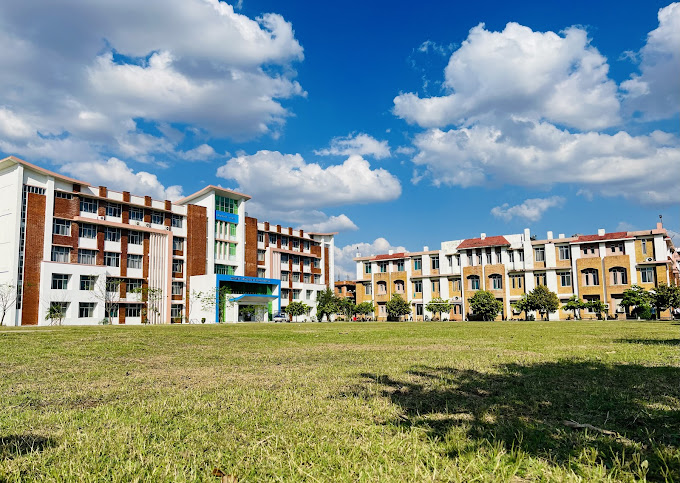
Universal Medical College is a prestigious institution renowned for its commitment to excellence in medical education, research, and healthcare delivery. Established in 1998, Universal Medical College has emerged as a leading medical college in Nepal, providing quality education and healthcare services to students and communities alike.
Universal Medical College enjoys a picturesque location amidst the lush greenery of Nepal's Terai region. The college is affiliated with Kathmandu University and is recognized by the Nepal Medical Council and the Medical Council of India, ensuring its programs adhere to international standards of medical education.
At the heart of Universal Medical College mission is its dedication to producing competent and compassionate healthcare professionals capable of meeting the evolving healthcare needs of Nepal and beyond. The college offers undergraduate and postgraduate programs in medicine and allied health sciences, attracting students from Nepal and various countries worldwide.
The undergraduate program encompasses the Bachelor of Medicine and Bachelor of Surgery (MBBS) degree, a rigorous six-year curriculum that combines theoretical knowledge with practical training. Students undergo comprehensive training in basic medical sciences, clinical medicine, and community health, preparing them for the challenges of modern healthcare practice.
Universal Medical College faculty comprises experienced educators and healthcare professionals committed to nurturing the next generation of medical leaders. The college emphasizes a student-centered approach to learning, fostering critical thinking, clinical reasoning, and ethical conduct among its students. Small class sizes and interactive teaching methodologies facilitate personalized attention and academic support, ensuring students receive a well-rounded education.
In addition to its undergraduate program, college offers postgraduate training in various medical specialties, including internal medicine, surgery, pediatrics, obstetrics and gynecology, and psychiatry. The postgraduate training programs are designed to equip medical graduates with advanced clinical skills and specialized knowledge, preparing them for careers as specialists, consultants, and researchers.
Universal Medical College is home to 350 bed state-of-the-art facilities hospital and infrastructure designed to support medical education, research, and patient care. The college boasts modern lecture halls, laboratories, simulation centers, and libraries stocked with a vast collection of medical literature and resources. Clinical training is conducted at affiliated hospitals and healthcare institutions equipped with the latest diagnostic and therapeutic technologies.
The college encourages faculty and students to engage in research activities aimed at advancing medical knowledge, improving healthcare practices, and addressing public health challenges. Research initiatives span various disciplines, including basic sciences, clinical medicine, epidemiology, and health systems research.
Universal Medical College is actively involved in community outreach and service initiatives aimed at improving healthcare access and outcomes in underserved populations. Through mobile health camps, health education programs, and collaborative partnerships with local organizations, CMS endeavors to address the healthcare needs of rural and marginalized communities across Nepal.
The college also fosters international collaborations and partnerships with academic institutions, healthcare organizations, and research centres worldwide. These collaborations facilitate knowledge exchange, cultural enrichment, and collaborative research endeavours, enhancing CMS's global footprint and contributing to the advancement of medical science and practice.
Universal Medical College stands as a beacon of excellence in medical education, research, and healthcare delivery. With its commitment to academic excellence, innovation, and service, CMS continues to play a pivotal role in shaping the future of healthcare in Nepal and making a meaningful impact on the well-being of communities locally and globally.
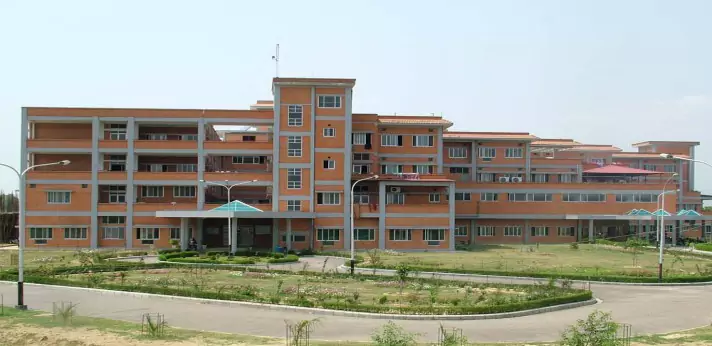
Nepalgunj Medical College (NGMC) is a prestigious medical institution situated in Nepalgunj, Nepal. Established with the vision to produce competent medical professionals and contribute to the healthcare sector of Nepal and beyond, NGMC has been a beacon of excellence in medical education, research, and healthcare services.
Nepalgunj Medical College was established in 1997 with the approval of the Government of Nepal and the Medical Education Council of Nepal. It is affiliated with Kathmandu University, one of the leading educational institutions in Nepal. The college started its journey with the aim of addressing the scarcity of qualified healthcare professionals in Nepal and providing quality medical education to aspiring students.
Nepalgunj Medical College boasts state-of-the-art infrastructure and facilities conducive to learning and research. The college campus is equipped with modern classrooms, well-equipped laboratories, a vast library with an extensive collection of medical literature, and research facilities. The campus also includes comfortable hostel accommodations for students, faculty residences, and recreational areas.
Nepalgunj Medical College offers undergraduate and postgraduate programs in various disciplines of medicine and healthcare. The undergraduate program leads to the degree of Bachelor of Medicine and Bachelor of Surgery (MBBS), which spans over five and a half years, including a one-year internship program. The college also offers postgraduate programs in various specialties such as internal medicine, surgery, paediatrics, obstetrics and gynaecology, and more.
One of the strengths of Nepalgunj Medical College is its 250-bed hospital and affiliation with several renowned hospitals and healthcare institutions in Nepal. Students receive hands-on clinical training and exposure to diverse medical cases at these affiliated hospitals, which include teaching hospitals and community health centres. This practical training prepares students to handle real-world medical challenges and instils in them the skills and confidence required to excel in their medical careers.
Nepalgunj Medical College encourages research and innovation among its faculty and students. The college provides support and resources for research initiatives aimed at addressing prevalent health issues, exploring new treatment modalities, and improving healthcare delivery systems. Through research collaborations and partnerships with national and international institutions, NGMC contributes to the global body of medical knowledge and fosters innovation in healthcare practices.
Nepalgunj Medical College is recognized by the Nepal Medical Council and affiliated with Kathmandu University, which are regulatory bodies ensuring the quality and standards of medical education in Nepal. The college has received accreditation and recognition from relevant national and international organizations, further validating its commitment to excellence in medical education and healthcare delivery.
Nepalgunj Medical College stands as a beacon of excellence in medical education, research, and healthcare services in Nepal. With its commitment to academic excellence, innovation, and community engagement, NGMC continues to produce competent healthcare professionals equipped to address the evolving challenges of the healthcare landscape. As it looks towards the future, Nepalgunj Medical College remains dedicated to its mission of advancing medical knowledge, promoting health, and serving the needs of society.
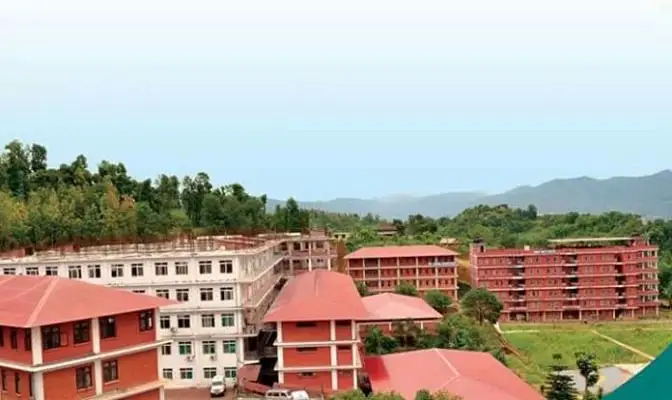
Lumbini Medical College (LMC) in Tansen, Nepal, stands as a testament to the pursuit of medical education excellence in the South Asian region. Founded with a vision to produce competent healthcare professionals and contribute to the betterment of healthcare in Nepal and beyond, LMC has become a prominent institution in medical education and healthcare delivery.
Established in 2002, Lumbini Medical College was founded on the principles of providing quality medical education, research, and healthcare services. The college is situated in Tansen, a town nestled in the hills of the Palpa district of Nepal. The serene surroundings provide an ideal backdrop for learning and academic pursuits.
The mission of Lumbini Medical College is multifaceted. It aims to train compassionate, skilled, and ethical healthcare professionals who can address the diverse healthcare needs of society. Additionally, the college emphasizes research and innovation to advance medical knowledge and improve patient care. Furthermore, LMC is committed to serving the local community and beyond by providing affordable and accessible healthcare services.
Lumbini Medical College offers a range of academic programs catering to aspiring healthcare professionals. The college provides undergraduate and postgraduate medical education, as well as various allied health sciences programs. The undergraduate medical program follows a comprehensive curriculum that integrates theoretical knowledge with practical clinical skills training. Additionally, LMC offers postgraduate residency training programs in various medical specialties, allowing doctors to pursue advanced training and specialization.
In addition to medical education, Lumbini Medical College offers programs in allied health sciences such as nursing, pharmacy, and medical laboratory technology. These programs play a crucial role in supporting healthcare delivery and contribute to the holistic approach of patient care.
One of the cornerstones of Lumbini Medical College's success is its dedicated faculty members. The college boasts a team of experienced and highly qualified educators who are committed to nurturing the next generation of healthcare professionals. The faculty members not only impart knowledge but also serve as mentors and role models for the students.
Furthermore, Lumbini Medical College is equipped with state-of-the-art infrastructure to support its academic and healthcare activities. The college campus features modern lecture halls, well-equipped laboratories, a comprehensive library, and advanced medical simulation facilities. These resources create a conducive learning environment where students can thrive academically and professionally.
Clinical training is an integral component of medical education at Lumbini Medical College. The college has established 311 bed hospital along with affiliations with leading hospitals and healthcare institutions where students gain hands-on experience under the supervision of experienced clinicians. This exposure to real-world clinical settings helps students develop clinical skills, professionalism, and empathy towards patients.
Moreover, Lumbini Medical College encourages research and innovation among its faculty and students. The college supports research initiatives across various disciplines, ranging from basic science to clinical research. Through research endeavours, Lumbini Medical College aims to contribute to the body of medical knowledge, address healthcare challenges, and improve patient outcomes.
Lumbini Medical College stands as a beacon of excellence in medical education and healthcare in Nepal. With its commitment to academic excellence, clinical training, research, and community engagement, LMC continues to make significant contributions to the healthcare landscape in the region. As it moves forward, Lumbini Medical College remains dedicated to its mission of producing competent healthcare professionals and improving the health and well-being of individuals and communities.
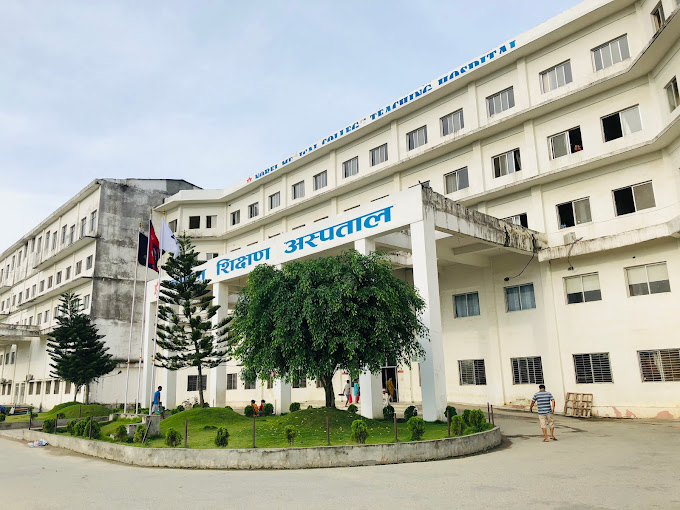
Nobel Medical College (NMC) in Biratnagar, Nepal, stands as a pivotal institution in the country's healthcare and medical education landscape. Established to address the pressing need for well-trained medical professionals in Nepal and the broader region, NMC has evolved into a center of excellence for medical education, research, and healthcare delivery. In this comprehensive exploration, we delve into the history, mission, academic programs, facilities, and contributions of Nobel Medical College.
Nobel Medical College was founded with a vision to produce competent and compassionate healthcare professionals who can address the healthcare challenges facing Nepal and beyond. The institution has since been committed to nurturing medical professionals equipped with the knowledge, skills, and ethical principles necessary to provide quality healthcare services.
Nobel Medical College offers a range of academic programs designed to train healthcare professionals at various levels. These programs include:Bachelor of Medicine and Bachelor of Surgery (MBBS): A comprehensive undergraduate program that prepares students for a career in medicine. The MBBS program covers foundational sciences, clinical skills, and practical training.
Bachelor of Nursing (BN): This program focuses on training nurses to provide competent and compassionate care to patients across various healthcare settings. Postgraduate Programs: NMC offers postgraduate training in various specialties, including Internal Medicine, Surgery, Pediatrics, Obstetrics and Gynecology, and more. These programs enable medical graduates to specialize in their areas of interest and expertise.
Faculty and Research: Nobel Medical College boasts a highly qualified and experienced faculty comprising medical professionals, researchers, and educators. The faculty members are dedicated to not only imparting knowledge but also engaging in cutting-edge research that contributes to the advancement of medical science and healthcare practice.
The institution actively promotes research activities among faculty and students through research grants, collaborations, and participation in national and international conferences. Research conducted at Nobel Medical College addresses a wide range of medical and public health issues, with a focus on addressing the specific healthcare needs of Nepal and the region.
Nobel Medical College is equipped with 911 bed state-of-the-art facilities hospital and infrastructure to support its educational and healthcare objectives. The campus features modern lecture halls, laboratories, libraries, and simulation centers where students can enhance their practical skills in a controlled environment. The college also has affiliations with tertiary care hospitals where students receive hands-on clinical training under the supervision of experienced healthcare professionals.
In addition to academic facilities, Nobel Medical College provides comprehensive healthcare services to the community through its affiliated hospitals and clinics. These facilities offer a wide range of medical services, including primary care, specialty care, diagnostic services, and emergency treatment.
Nobel Medical College in Biratnagar, Nepal, epitomizes excellence in medical education, research, and healthcare delivery. Since its inception, the institution has remained steadfast in its commitment to producing skilled and compassionate healthcare professionals who can make meaningful contributions to society. With its focus on quality education, research excellence, community engagement, and ethical practice, Nobel Medical College continues to play a pivotal role in shaping the future of healthcare in Nepal and beyond
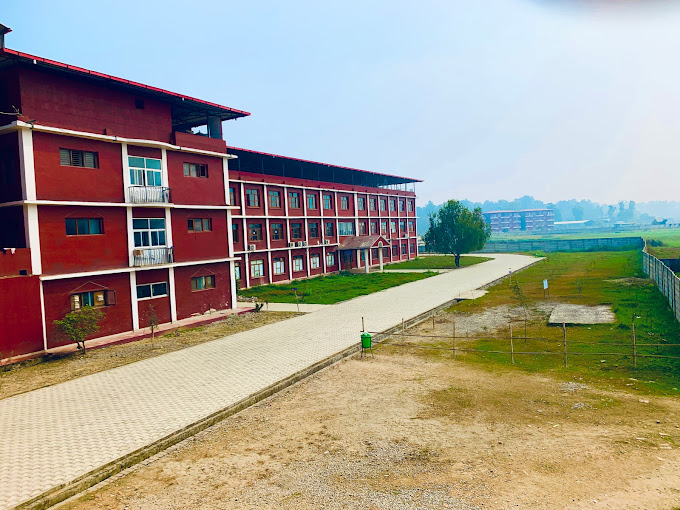
Devdaha Medical College and Teaching Hospital, located in Devdaha, Nepal, stands as a beacon of medical education and healthcare in the region. Established to address the growing need for quality medical professionals and healthcare services, Devdaha Medical College has emerged as a prestigious institution since its inception. In this comprehensive overview, we delve into the history, infrastructure, academic programs, and community engagement efforts of Devdaha Medical College & Teaching Hospital.
Devdaha Medical College & Teaching Hospital was founded with a vision to bridge the healthcare gap in Nepal and contribute to the training of competent medical professionals. Established in [Year], the institution has steadily evolved, gaining recognition for its commitment to excellence in medical education and patient care.
The college boasts 400+ state-of-the-art infrastructure teaching hospital, including modern classrooms, well-equipped laboratories, simulation centers, and a vast library stocked with medical literature and resources. The Teaching Hospital is furnished with advanced medical equipment and facilities to provide comprehensive healthcare services to patients from Devdaha and surrounding areas.
Devdaha Medical College is offering undergraduate and postgraduate programs in medical disciplines, including Medicine, Surgery, Pediatrics, Obstetrics and Gynecology, Psychiatry, and more. The curriculum is designed to meet international standards and is regularly updated to incorporate advancements in medical science and technology. The faculty comprises experienced professionals and experts in their respective fields who are dedicated to nurturing the next generation of healthcare professionals.
Clinical training is a pivotal component of medical education at Devdaha Medical College. Students receive hands-on experience under the guidance of experienced clinicians and are exposed to diverse clinical scenarios to enhance their diagnostic and treatment skills. The institution also encourages research and innovation, providing students and faculty with opportunities to engage in cutting-edge research projects aimed at addressing healthcare challenges and advancing medical knowledge.
Devdaha Medical College has established partnerships and collaborations with renowned medical institutions and organizations worldwide. These collaborations facilitate knowledge exchange, faculty development programs, and research collaborations, enriching the academic experience and fostering global perspectives among students and faculty.
Devdaha Medical College & Teaching Hospital is affiliated with Kathmandu University. The institution maintains high standards of quality and professionalism, ensuring that graduates meet the requisite qualifications and competencies to practice medicine ethically and effectively.
As Devdaha Medical College continues to grow and evolve, it remains committed to its mission of excellence in medical education, research, and patient care. The institution aims to expand its academic programs, enhance research capabilities, and further strengthen its ties with the community and healthcare partners to address emerging healthcare challenges and contribute to the well-being of society.
Devdaha Medical College & Teaching Hospital stands as a beacon of hope and progress in the field of medical education and healthcare in Nepal. With its unwavering commitment to excellence, dedication to service, and emphasis on innovation, the institution is poised to shape the future of healthcare and make a lasting impact on the lives of individuals and communities across the region.
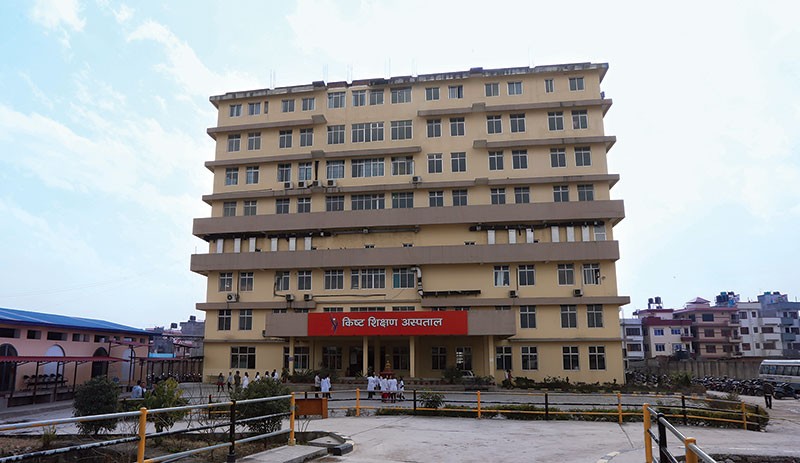
KIST Medical College (KISTMCTH) located in Madol, Lalitpur, Nepal, stands as a beacon of medical education and healthcare excellence in the region. Established with a vision to produce skilled medical professionals and advance healthcare services, the college has emerged as a prominent institution since its inception.
KIST Medical College and Teaching Hospital traces its roots to the Kathmandu Institute of Science and Technology (KIST), which was founded in 1995 by a group of dedicated professionals and academicians. Recognizing the growing need for quality medical education in Nepal, the institution expanded its scope to include a medical college and teaching hospital.
KIST Medical College offers undergraduate and postgraduate programs in various medical disciplines. The Bachelor of Medicine and Bachelor of Surgery (MBBS) program is the flagship offering, attracting aspiring medical students from across Nepal and beyond. The curriculum is designed to meet international standards and incorporates both theoretical knowledge and practical experience to ensure holistic medical education.
In addition to the MBBS program, KIST Medical College provides postgraduate courses in various specialties, allowing medical professionals to further their expertise and contribute to the advancement of healthcare delivery in Nepal. The college also offers continuous medical education programs to facilitate lifelong learning among healthcare practitioners.
The college boasts 550 teaching bed state-of-the-art infrastructure hospital and facilities to support teaching, research, and patient care. The KIST Teaching Hospital serves as a hub for clinical training, equipped with modern diagnostic and treatment facilities. From advanced laboratories to specialized departments, the hospital provides students with hands-on experience under the guidance of experienced faculty members and medical professionals.
The campus features lecture halls, libraries, research centers, and simulation labs to foster a conducive learning environment. Students have access to a vast collection of medical literature and research resources to support their academic pursuits.
KIST Medical College prides itself on its distinguished faculty members who are experts in their respective fields. Comprising experienced clinicians, researchers, and educators, the faculty plays a pivotal role in shaping the future generation of healthcare professionals. Their commitment to excellence and passion for teaching contribute significantly to the academic and clinical success of the institution.
Research is a cornerstone of KIST Medical College's academic pursuits. Faculty members and students engage in interdisciplinary research projects aimed at addressing pressing healthcare challenges and advancing medical knowledge. From basic science research to clinical trials, the institution fosters a culture of innovation and inquiry.
Collaborations with national and international institutions enhance research opportunities and facilitate knowledge exchange. Through scholarly publications, conferences, and seminars, KISTMCTH contributes to the global discourse on healthcare and medical science.
KIST Medical College is recognized by the Nepal Medical Council (NMC) and affiliated with Tribhuvan University, a prestigious institution of higher education in Nepal. The college adheres to strict quality standards and maintains accreditation from regulatory bodies to ensure the credibility and integrity of its academic programs.
Furthermore, affiliations with international medical organizations and universities facilitate global recognition and collaboration, enriching the academic experience and opportunities for students and faculty members.
KIST Medical College and Teaching Hospital epitomize excellence in medical education, research, and healthcare delivery in Nepal. With a steadfast commitment to academic rigor, innovation, and community engagement, the institution continues to nurture the next generation of medical professionals and contribute to the advancement of healthcare both locally and globally. As it embarks on its journey of excellence, KISTMCTH remains dedicated to its mission of shaping the future of healthcare in Nepal and beyond
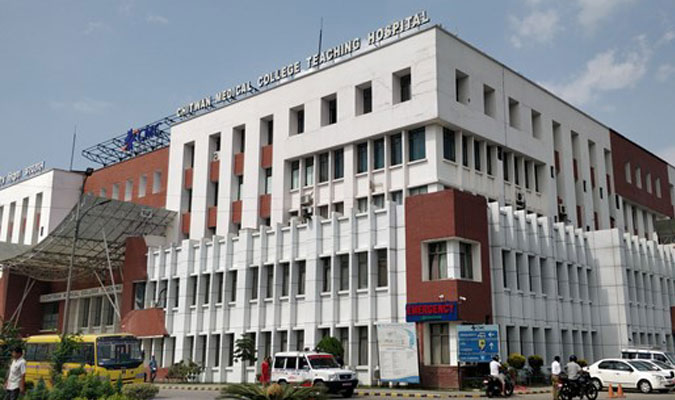
Chitwan Medical College (CMC), located in Bharatpur, Chitwan, Nepal, stands as a beacon of medical education and healthcare services in the region. Founded with a vision to address the pressing healthcare needs of Nepal and beyond, CMC has evolved into a prestigious institution known for its commitment to excellence in medical education, research, and patient care.
Chitwan Medical College was established in 2006 with the aim of providing quality medical education and healthcare services to the people of Nepal. Recognizing the scarcity of medical facilities and healthcare professionals in the region, the founders embarked on a mission to bridge the gap and contribute to the overall health and well-being of the community.
Chitwan Medical College boasts state-of-the-art infrastructure and facilities that facilitate the holistic development of medical professionals. The college campus is equipped with modern classrooms, laboratories, libraries, and research centers, providing students with access to the latest advancements in medical science and technology.
The college hospital has 750 bed for clinical and practical knowledge along with its affiliated with other medical hospital, serves as a centre for clinical training and patient care. With its comprehensive range of medical services and specialized departments, the hospital caters to the healthcare needs of the local population while offering students valuable hands-on experience in a real-world healthcare setting.
Chitwan Medical College offers a diverse range of academic programs tailored to meet the evolving needs of the healthcare industry. The college provides undergraduate and postgraduate courses in various medical disciplines, including medicine, surgery, nursing, pharmacy, and allied health sciences.
The curriculum is designed to adhere to international standards and guidelines, ensuring that students receive a well-rounded education that prepares them for the challenges of modern healthcare practice. Emphasis is placed not only on theoretical knowledge but also on practical skills, critical thinking, and ethical conduct.
Chitwan Medical College places a strong emphasis on research and innovation, recognizing their pivotal role in advancing medical science and improving patient outcomes. The college actively promotes research initiatives and provides students and faculty with the resources and support needed to engage in meaningful research endeavors.
Through collaborations with national and international institutions, CMC facilitates knowledge exchange and collaboration, fostering a culture of innovation and discovery. Research findings are disseminated through publications, conferences, and academic forums, contributing to the global body of scientific knowledge.
Chitwan Medical College is recognized by the Medical Education Council (MEC) and affiliated with Tribhuvan University, one of the leading academic institutions in Nepal. The college maintains stringent quality standards and undergoes regular evaluations and accreditation processes to ensure compliance with regulatory requirements and uphold its reputation for excellence.
In addition to national recognition, Chitwan Medical College has forged partnerships with renowned international organizations and universities, enabling students and faculty to benefit from global perspectives and opportunities for academic and professional growth.
Chitwan Medical College stands as a beacon of excellence in medical education, research, and healthcare services in Nepal and beyond. With its unwavering commitment to academic rigor, clinical excellence, and social responsibility, Chitwan Medical College continues to inspire and empower the next generation of healthcare professionals to make a meaningful difference in the lives of others. As it looks to the future, the college remains dedicated to its mission of advancing knowledge, promoting health, and serving humanity with compassion and integrity.
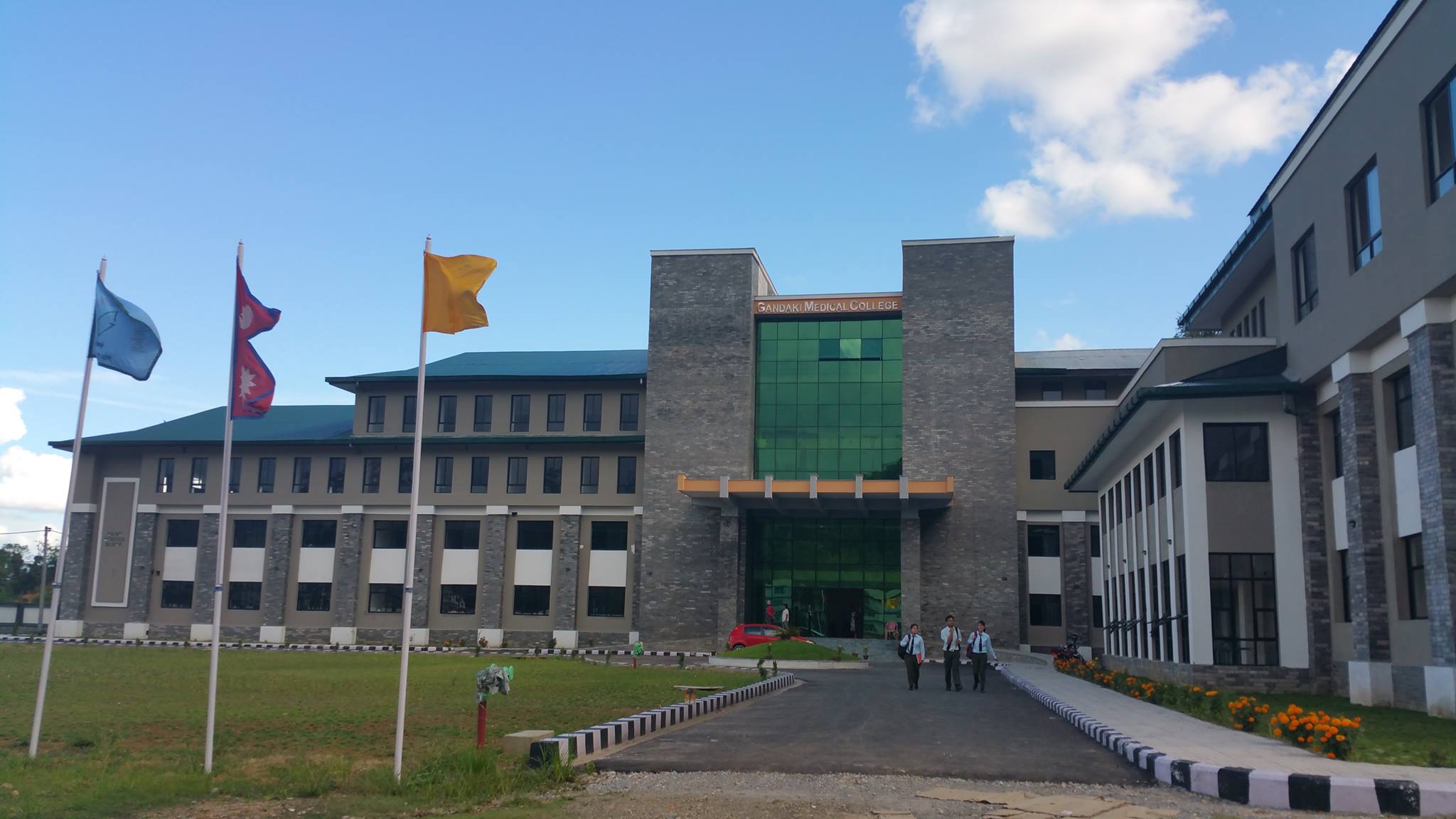
Gandaki Medical College Teaching Hospital and Research Center (GMCTHRC) is a prominent institution located in Lekhnath, Pokhara, Nepal. Established with the aim of providing quality medical education, healthcare services, and conducting research, GMCTHRC stands as a testament to Nepal's commitment to advancing medical knowledge and addressing healthcare needs.
Since its establishment, the institution has been dedicated to producing competent healthcare professionals and contributing to the betterment of healthcare infrastructure in Nepal. The journey of Gandaki Medical College Teaching Hospital and Research Center has been characterized by continuous growth, innovation, and a strong emphasis on community health.
One of the distinctive features of Gandaki Medical College Teaching Hospital and Research Center is its comprehensive medical education programs. The institution offers undergraduate and postgraduate courses in various medical disciplines, including Medicine, Surgery, Pediatrics, Obstetrics and Gynecology, Anesthesiology, Radiology, and more. The curriculum is designed to meet international standards and is regularly updated to incorporate the latest advancements in medical science and technology.
The faculty members at Gandaki Medical College Teaching Hospital and Research Center are highly qualified and experienced professionals who are committed to nurturing the next generation of healthcare leaders. They not only impart theoretical knowledge through their 550 bed hospital but also emphasize practical skills and clinical exposure, ensuring that students are well-prepared to meet the challenges of modern healthcare practice.
In addition to academic excellence, Gandaki Medical College Teaching Hospital and Research Center places a strong emphasis on research and innovation. The institution encourages faculty members and students to engage in research activities aimed at addressing prevalent health issues, discovering new treatment modalities, and improving healthcare delivery systems. Research findings from GMCTHRC contribute to the global body of medical knowledge and have a tangible impact on healthcare practices in Nepal and beyond.
Gandaki Medical College Teaching Hospital and Research Center commitment to providing quality healthcare services extends beyond the confines of its campus. The institution operates a state-of-the-art teaching hospital equipped with modern facilities and staffed by skilled healthcare professionals. The hospital provides a wide range of medical services, including primary care, specialty consultations, diagnostic services, surgical procedures, and emergency care, catering to the healthcare needs of the local community as well as patients from neighbouring regions.
Gandaki Medical College Teaching Hospital and Research Center commitment to excellence has been recognized both nationally and internationally. The institution has forged partnerships with renowned academic institutions, healthcare organizations, and governmental agencies to facilitate knowledge exchange, collaborative research, and capacity-building initiatives. These partnerships not only enhance GMCTHRC's academic and research endeavours but also contribute to the overall development of Nepal's healthcare sector.
As Gandaki Medical College Teaching Hospital and Research Center continues to grow and evolve, it remains steadfast in its commitment to its core values of integrity, excellence, compassion, and innovation. The institution strives to uphold the highest standards of medical education, healthcare delivery, and research, thereby making a meaningful contribution to the advancement of healthcare in Nepal and beyond.
Gandaki Medical College Teaching Hospital and Research Center (GMCTHRC) is a beacon of excellence in medical education, healthcare services, and research in Nepal. Through its comprehensive academic programs, cutting-edge research initiatives, and commitment to community engagement, GMCTHRC is shaping the future of healthcare and making a positive impact on the lives of people across the region.
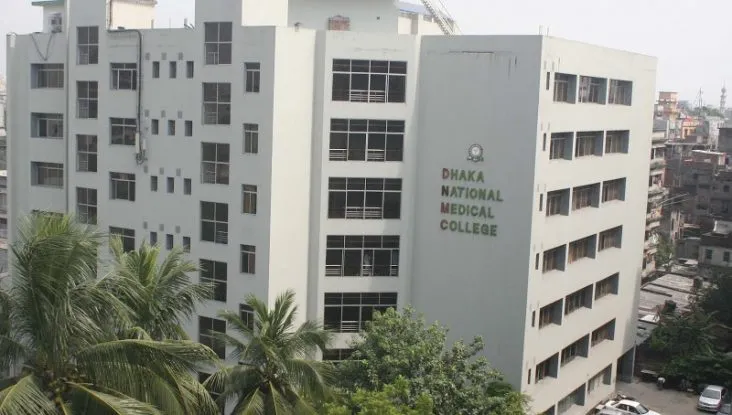
National Medical College (NMC) in Birgunj, Nepal, stands as a beacon of medical education in the South Asian region, renowned for its commitment to producing skilled healthcare professionals and advancing medical research. Founded with the vision of addressing Nepal's healthcare needs and contributing to global medical advancements, NMC has established itself as a prestigious institution since its inception.
National Medical College traces its roots back to [year], when it was established under the aegis of [organization/institution]. The coll
ege was envisioned as a catalyst for transforming healthcare in Nepal by providing quality medical education and training. Located in the bustling city of Birgunj, NMC has been strategically positioned to serve diverse communities and cater to the healthcare challenges prevalent in both urban and rural settings.National Medical College boasts state-of-the-art infrastructure and modern facilities essential for comprehensive medical education and research. It offers 700 bed hospital for clinical practice and teaching. Its sprawling campus encompasses well-equipped lecture halls, laboratories, libraries, and specialized departments catering to various medical disciplines. The college is committed to providing students with hands-on training through clinical attachments to affiliated hospitals and healthcare institutions.
National Medical College offers a wide array of academic programs tailored to meet the evolving needs of the medical profession. Its undergraduate medical program, Bachelor of Medicine and Bachelor of Surgery (MBBS), is designed to impart theoretical knowledge and practical skills essential for medical practice. The curriculum integrates classroom teaching, clinical rotations, and research opportunities to nurture well-rounded medical professionals.
In addition to the MBBS program, NMC offers postgraduate courses, diploma programs, and continuing medical education (CME) initiatives to facilitate lifelong learning and professional development among healthcare practitioners. The college encourages interdisciplinary collaboration and fosters a culture of innovation to address emerging healthcare challenges effectively.
NMC boasts a distinguished faculty comprising experienced clinicians, researchers, and educators dedicated to nurturing the next generation of healthcare leaders. The faculty members bring a wealth of expertise from diverse medical specialties, enriching the learning experience through their clinical insights and academic contributions.
Research and innovation are integral components of National Medical College academic ethos, driving advancements in medical science and healthcare delivery. The college encourages faculty and students to engage in cutting-edge research initiatives addressing prevalent health issues and exploring novel treatment modalities. Through collaborations with national and international research institutions, NMC aims to foster a culture of scientific inquiry and knowledge dissemination.
National Medical College is recognized by the Medical Education Council (MEC) and affiliated with Tribhuvan University, Nepal's premier academic institution. The college adheres to stringent accreditation standards and regulatory guidelines to ensure the quality and integrity of its academic programs. Its affiliation with reputable medical organizations and professional bodies underscores NMC's commitment to upholding the highest standards of medical education and practice.
National Medical College (NMC) in Birgunj, Nepal, epitomizes excellence in medical education, research, and healthcare delivery. With its unwavering commitment to academic excellence, innovation, and community service, NMC continues to shape the future of healthcare in Nepal and beyond. As it embarks on its journey of growth and development, NMC remains steadfast in its mission to empower aspiring healthcare professionals and address the evolving healthcare needs of society
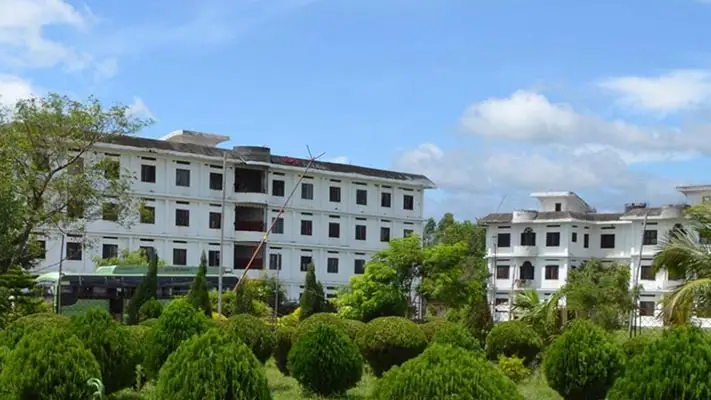
Janaki Medical College (JMC) in Janakpur, Nepal, stands as a beacon of medical education and healthcare provision in the region. Founded with the vision to address the healthcare needs of the people of Janakpur and surrounding areas, JMC has evolved into a premier institution renowned for its commitment to excellence in medical education, research, and healthcare delivery.
Janaki Medical College was established in 1999 under the affiliation of Tribhuvan University, Nepal's oldest and most prestigious university. The college was founded by a group of dedicated medical professionals and philanthropists with the aim of bridging the gap in healthcare services and medical education in the region. Named after Goddess Janaki, the renowned mythological figure associated with Janakpur, the college embodies the spirit of service and compassion.
Janaki Medical College boasts modern infrastructure and state-of-the-art facilities to support its academic and healthcare missions. The campus encompasses lecture halls, laboratories, libraries, and research centers equipped with the latest technologies. The college also houses a teaching hospital, which serves as a hub for clinical training and patient care. The hospital offers a wide range of medical services, including primary care, specialty care, and surgical interventions, catering to the healthcare needs of the local population.
Janaki Medical College offers undergraduate and postgraduate programs in medicine and allied health sciences. The Bachelor of Medicine, Bachelor of Surgery (MBBS) program is the flagship offering of the college, attracting aspiring medical professionals from across Nepal and beyond. The curriculum is comprehensive and rigorous, covering basic sciences, clinical medicine, and practical training in various specialties.
In addition to the MBBS program, Janaki Medical College provides training in nursing, pharmacy, and other allied health disciplines. The college is committed to producing competent healthcare professionals equipped with the knowledge, skills, and compassion required to address the evolving healthcare challenges of the 21st century.
The strength of any academic institution lies in its faculty and staff, and JMC is no exception. The college boasts a team of highly qualified and experienced faculty members who are dedicated to nurturing the next generation of healthcare professionals. The faculty members engage in teaching, research, and clinical practice, contributing to the academic and intellectual vibrancy of the institution. It offers 350+ bed hospital for clinical training for the students.
In addition to faculty members, Janaki Medical College employs a diverse team of administrative and support staff who play a crucial role in the smooth functioning of the college and hospital. From administrative personnel to healthcare workers, every member of the JMC community is committed to upholding the institution's values of excellence, integrity, and compassion.
Janaki Medical College places a strong emphasis on research and innovation as integral components of its academic mission. Faculty members and students are actively engaged in research activities across various disciplines, exploring new frontiers in medical science and healthcare delivery. The college encourages interdisciplinary collaboration and provides support for research projects, conferences, and publications.
Through its research endeavours, JMC aims to contribute to the advancement of medical knowledge, improve healthcare outcomes, and address the health disparities prevalent in the region. From clinical trials to epidemiological studies, the research conducted at JMC has the potential to make a meaningful impact on the health and well-being of communities both locally and globally.
JMC also collaborates with governmental and non-governmental organizations to implement public health initiatives, tackle infectious diseases, and respond to health emergencies. By actively engaging with the community, JMC seeks to build trust, foster partnerships, and create sustainable solutions to healthcare challenges.
Janaki Medical College stands as a testament to the transformative power of education, innovation, and service. Since its inception, the college has remained steadfast in its commitment to excellence, integrity, and compassion. Through its academic programs, clinical services, research endeavors, and community engagement efforts, JMC continues to make a profound impact on the lives of individuals and the health of communities in Janakpur and beyond. As Nepal's healthcare landscape evolves, JMC remains poised to lead the way in shaping the future of medical education and healthcare delivery in the region.